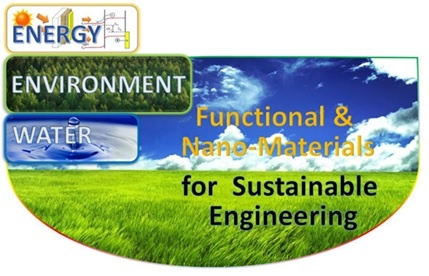Nanomaterials have revolutionized our lives. They can be made by adding nanoscale components into existing materials or by designing them on their own. This course will present nanomaterials for a number of different applications related to for example energy and environmental mitigation techniques, to show the multidisciplinary possibilities of nanomaterials. This course intends to build around the multidisciplinary field to provide sufficient knowledge to the learner in order to understand the promising nanotechnology applications in the nexus between Energy, Environment and Sustainable Development. Main contents are:
- Environmental effects of energy extraction, conversion and use
- Sources of pollution from renewable and non-renewable energy technologies
- Systems- clean/green energy technologies
- Nanotechnology-Enabled Energy Harvesting for Self-Powered systems
- Nanomaterials in catalysis, photovoltaics, hydrogen exploitation, fuel cells, batteries, and thermoelectricity
- Insight into systems where nanotechnology are/can be used for sustainable development
